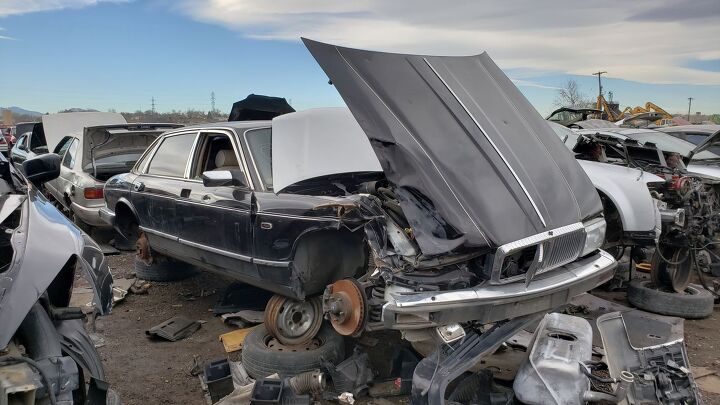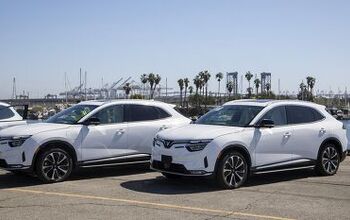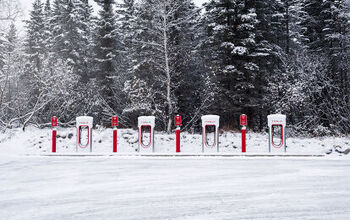UK Expedites the Internal Combustion Car's Death Sentence

The clock’s ticking, Britain. You have 15 years.
In a bid to firm up its environmental cred, the UK has announced its intention to move up its planned ban on internal combustion vehicle sales from 2040 to 2035. In a country with a rising population and a declining amount of power generation, the move should have a few people pulling out their hair.
Especially those who make their living building cars.
Not environmentalists, of course, who have long demanded the country do more to lower its carbon footprint. Ahead of a planned UN climate conference — COP26 — those voices grew louder.
As reported by Reuters, Prime Minister Boris Johnson used the launch of the November conference, to be held in Scotland, as a springboard for the proposed policy.
“We have to deal with our CO2 emissions, and that is why the UK is calling for us to get to net zero as soon as possible, to get every country to announce credible targets to get there – that’s what we want from Glasgow,” Johnson said.
The ban on the sale of gasoline and diesel vehicles would also forbid the sale of hybrid vehicles, leaving pure EVs as the only acceptable vehicle to buy. Older ICE vehicles would likely face restrictions on movement — an effort that’s already underway in many European cities.
The proposed policy would spur British automakers into pushing even harder into the electric realm, if for nothing other than self-preservation. A societal shift will also need to occur, by force if necessary, to accomplish the transition. In 2019, just 7.3 percent of new vehicle registrations in the UK were “alternative fuel” vehicles.
At the same time, electricity production in the UK is on the wane as the country works to remove coal from its generation mix. That material has largely been replaced by natural gas and wind; the grid is far greener than it was a decade prior, but the total amount of energy generated is still trending downward. The grid’s ability to handle the simultaneous charging of millions of electric vehicles with capacity to spare remains to be seen.
[Image: Murilee Martin/TTAC]

More by Steph Willems
Latest Car Reviews
Read moreLatest Product Reviews
Read moreRecent Comments
- Fed65767768 Good Christ, no.CP.
- Kwik_Shift_Pro4X The main advice I've heard is to stay away from the BMW engine.
- Rna65689660 For Los Angeles, this is super cheap housing. For it surely will be not going anywhere very often. Park it at Wallyworld for 3 days, then move to the next lot.
- MaintenanceCosts This is half a car, because half the time it will be in the shop.
- Mm3 ^^^ Sounds like a bunch of dudes who have never owned a Land Rover/Range Rover

































Comments
Join the conversation
Reducing carbon emissions is a Really Good Idea. The scientific data showing the relationship between rising CO2 levels and global warming is overwhelming. We need to combat climate change if we want to save ourselves - this is the only planet we have. But the inconvenient truth is that BEVs just don't make sense if the majority of electricity is generated from fossil fuels. In the UK, 54% of electricity is generated from fossil fuels, and 21% from nuclear. Only 25% is generated from renewable sources. A BEV is only as "green" as the power source used to generate the electricity: https://www.scientificamerican.com/article/electric-cars-are-not-necessarily-clean/ Electricity is not ‘free’. It doesn’t just come out of a wall socket on its own. Some other primary energy source must be used to generate the electricity. Most non-technically trained bureaucrats promoting BEVs ignore this. Of course the situation would be different IF electricity were predominantly generated from renewable sources (solar, wind, tidal, geothermal). But that's not the case in the UK. Given the dire condition of the economy, it seems unlikely they will find the massive capital needed to build large numbers of renewable energy electric power plants by the self-imposed 2035 deadline. So unfortunately, the bottom line is that with the CURRENT UK (and US) electric energy grid, one would probably be better off simply burning fossil fuel directly rather than converting it into electricity to then power a BEV. It still comes back to having to change the electric grid and how electricity is generated. Until then, people are just kidding ourselves with artificial and inaccurate ‘MPGe’ numbers that might make some people feel good, but don’t reflect reality.
Ought to be easy, just buy the excess nuclear power that France generates. Of course, if the French go for electric cars they might need all that power. Solar might just work in Arizona, but it wouldn't work well in the UK in the winter. It's so much further north and at the end of the year it is noticeably starting to get dark at 3:15 in the afternoon. Not to mention the cloud and rain they get.